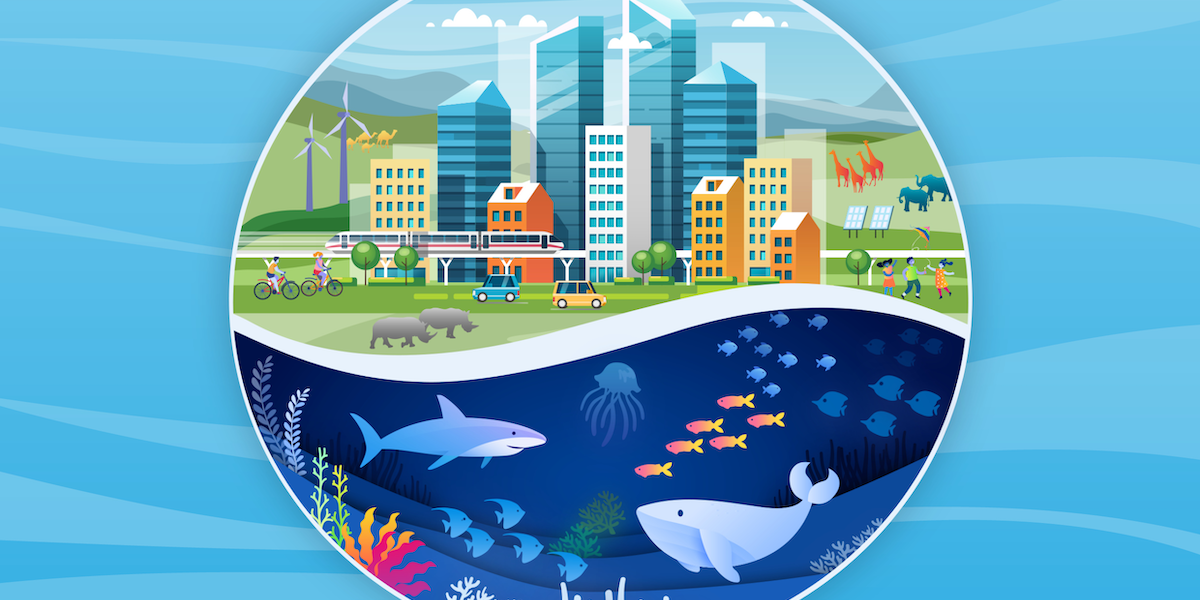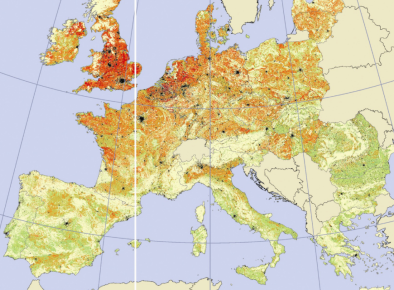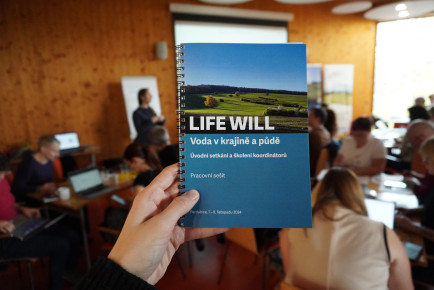JAKUB ZELENÝ: COP 15 WILL RAISE THE ISSUE OF THE IMPORTANCE OF BIODIVERSITY FOR HUMANITY
Published: Dec 8, 2022 Reading time: 4 minutes Share: Share an articleThe end of 2022 has been rich in major environmental conferences. The COP15 summit on biodiversity loss is underway in Montreal. A crisis of global proportions, no less serious than the climate crisis, will hopefully be resolved at this UN conference. An international framework agreement on a strategy for the protection of nature and biodiversity must be reached here. Still, ways to effectively measure such protection will also need addressing.

Hot on the heels of the COP27 climate summit in Egypt, the COP15 biodiversity summit has started in Canada. Climate change has been a central issue in international negotiations for some time, but humanity is facing not one but two environmental disasters simultaneously—climate change and loss of biodiversity. Yet, both crises are related, and biodiversity can be a problem and a solution to the causes of climate change.
Biodiversity is a term that includes both the diversity of biological species and the health of the ecosystems that make up our biosphere. Recently, global society is beginning to realise its dependence on the state of the biosphere, and its destruction threatens its survival. Biological species are currently dying out at the fastest rate since the age of the dinosaurs, natural ecosystems are being transformed into industrial plantations, and thus their ability to provide vital services and functions to humanity such as food, wood, water purification, and oxygen production is decreasing.
At the same time, healthy ecosystems are our strongest ally in fighting against rising emissions and extreme weather. The link between climate change and biodiversity is gaining acceptance in international negotiations. States agree that the ability of ecosystems and soils to capture atmospheric carbon is one of the most critical solutions to the problem of rising emissions. However, we currently use the landscape beyond its self-preservation capabilities and leave minimal parts of our biosphere to their own development—this dramatically reduces nature's ability to bind carbon and regulate the effects of climate change.
COP15 brings a crucial topic to light
COP15 is supposed to be about protected areas and landscape use. A delegation from the Czech Republic will represent the EU at the conference as part of the Czech Presidency of the EU.
The goal of the conference is to reach an international framework convention on the strategy for protecting nature and biodiversity, similar to what exists in the area of reducing greenhouse gas emissions. One proposal is an agreement to preserve 30% of land and 30% of marine ecosystems.
The summit is also about limiting the use of harmful substances in agriculture, cancelling subsidies for harmful activities, and returning biodiversity to intensively used landscapes; the summit will also seek ways to measure progress in its protection. The states do not yet have an established way of quantifying it and its loss. With an agreed measurement system, states could monitor progress towards the set goals and document these during further international negotiations.
Natural wealth is not evenly distributed. While developed countries have already managed to eliminate most of their ecosystems, developing countries have not yet managed to do so within the framework of their economic development. Serious attention must be paid to biodiversity hotspots such as tropical rainforests if we are to achieve the goals set out in the biodiversity conservation framework. Therefore, at COP15, one of the fundamental topics for discussion will be establishing a fund to protect the most valuable ecosystems. For such a mechanism to work, rich countries must contribute adequately.
Expectations from the COP15 conference are high, and there is talk of the possibility of creating an agreement on biodiversity, which would be comparable in importance to the Paris Agreement on reducing emissions. Realistic expectations, however, count on creating an "agreement on an agreement", i.e. a precursor to the Paris Agreement on Biodiversity.
Our development projects take biodiversity conservation into account
In developing countries, we at People in Need implement landscape restoration projects and teach local farmers to farm without negatively impacting local biodiversity. Overall, in our projects, we try to implement climate-resistant and ecologically sound solutions in which support of biodiversity plays a key role. We help farmers to diversify their production through productive landscape projects in Ethiopia's Sidama or Angola's Chitanda project; furthermore, we help these farmers to diversify their production. We assist Mongolian farmers in the Gobi Desert to establish crop production to prevent further desertification due to overgrazing by livestock. And in Georgia, we support local beekeepers.
So far, we have discussed our actions across the world; however, we know that we must also tend our own garden; therefore, in the Czech Republic, we are focussed on the topic of drought and landscape adaptation. We are working to strengthen the resistance of the Czech landscape and residents to extreme weather precisely through solutions close to nature. Also, for this purpose, this autumn, we launched the LIFE WILL project, through which we will introduce elements into the Czech landscape that will fundamentally benefit its species diversity.


